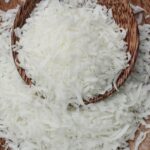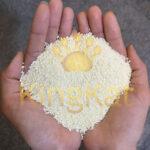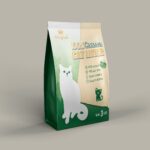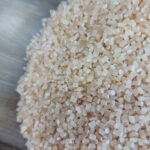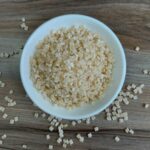CASHEW NUT SHELL OIL
Choosing the right cat litter is crucial for maintaining a clean and odor-free home while ensuring the health and comfort of your feline friend. Among the numerous options available, cassava cat litter and corn cat litter stand out for their eco-friendliness and natural ingredients. In this blog post, we will compare these two types of cat litter, focusing on their key attributes, benefits, and potential drawbacks to help you make an informed decision.


Table of Contents
Toggle1. Ingredients and Environmental Impact
Cassava Cat Litter: Cassava cat litter is made from the root of the cassava plant, a staple in many tropical regions. This plant-based litter is biodegradable and compostable, making it an environmentally friendly option. The production process of cassava litter is sustainable, as it utilizes a renewable resource that is also used in food production.
Corn Cat Litter: Corn cat litter is produced from ground corn kernels, another renewable and biodegradable resource. Corn is widely grown and readily available, which contributes to the sustainability of this litter. Additionally, corn litter is compostable, reducing landfill waste.
Comparison: Both cassava and corn cat litters are excellent choices for eco-conscious pet owners. They utilize renewable resources and offer compostable options, minimizing their environmental footprint. However, cassava litter may have a slight edge in regions where cassava is more readily available, reducing transportation emissions.
2. Odor Control
Cassava Cat Litter: Cassava cat litter is known for its excellent odor control properties. The natural starches in cassava help to absorb and neutralize odors effectively, keeping your home smelling fresh.
Corn Cat Litter: Corn cat litter also offers good odor control, thanks to the natural absorbency of corn. Some corn litters are enhanced with baking soda or other additives to further improve their odor-neutralizing capabilities.
Comparison: Both litters provide effective odor control, but cassava cat litter might have a slight advantage due to its natural starch content, which excels in neutralizing odors.
3. Clumping Ability
Cassava Cat Litter: Cassava litter forms strong, solid clumps when it comes into contact with moisture. This makes it easy to scoop and helps to maintain a clean litter box.
Corn Cat Litter: Corn cat litter also clumps well, forming firm clumps that are easy to remove. The clumping action is a result of the natural absorbency of the corn material.
Comparison: Both cassava and corn cat litters are highly effective at clumping, providing a convenient and hygienic solution for cat owners. The choice between them may come down to personal preference or specific product formulations.
4. Dust Levels
Cassava Cat Litter: One of the standout features of cassava cat litter is its low dust production. This is beneficial for both cats and their owners, particularly those with respiratory sensitivities.
Corn Cat Litter: Corn cat litter can produce more dust compared to cassava litter, although many brands offer low-dust formulas. Dust levels can vary between products, so it is important to check individual brands.
Comparison: Cassava cat litter generally has an advantage in terms of dust levels, making it a better option for households concerned about air quality and respiratory health.
5. Price and Availability
Cassava Cat Litter: Cassava cat litter can be more expensive than traditional clay litters, but its price is comparable to other premium natural litters. Its availability may vary depending on the region, as cassava is more commonly found in tropical areas.
Corn Cat Litter: Corn cat litter is widely available and priced competitively with other natural litters. However, in some regions, its price may be slightly higher due to production and transportation costs.
Comparison: Corn cat litter may be more readily available in many areas, and its price can vary. Both types offer good value for the benefits they provide.
6. Additional Benefits
Cassava Cat Litter: Another benefit of cassava cat litter is its light weight. This makes it easier to handle and transport compared to traditional clay litters. Additionally, cassava litter is often flushable, providing extra convenience for cat owners.
Corn Cat Litter: Corn cat litter also offers a lightweight option compared to clay litters. Some brands of corn litter include natural fragrances or additives that can further enhance odor control and provide a pleasant scent.
Comparison: Both cassava and corn litters offer additional benefits such as being lightweight and, in some cases, flushable. These features add to the overall convenience and user-friendliness of these natural litters.
Conclusion
Both cassava and corn cat litters are excellent choices for eco-conscious cat owners seeking natural, biodegradable, and effective litter options. Cassava cat litter stands out for its superior odor control and low dust production, while corn cat litter is widely available and has variable pricing. Ultimately, the best choice depends on your specific needs, preferences, and the availability of these products in your area.
By choosing either cassava or corn cat litter, you are making a positive impact on the environment while providing a clean and comfortable space for your beloved feline companion.
If you need cat litter for your cat, please contact us at Abimex Group. We are dedicated to offering the best products to ensure the well-being of your pets and the cleanliness of your home.



